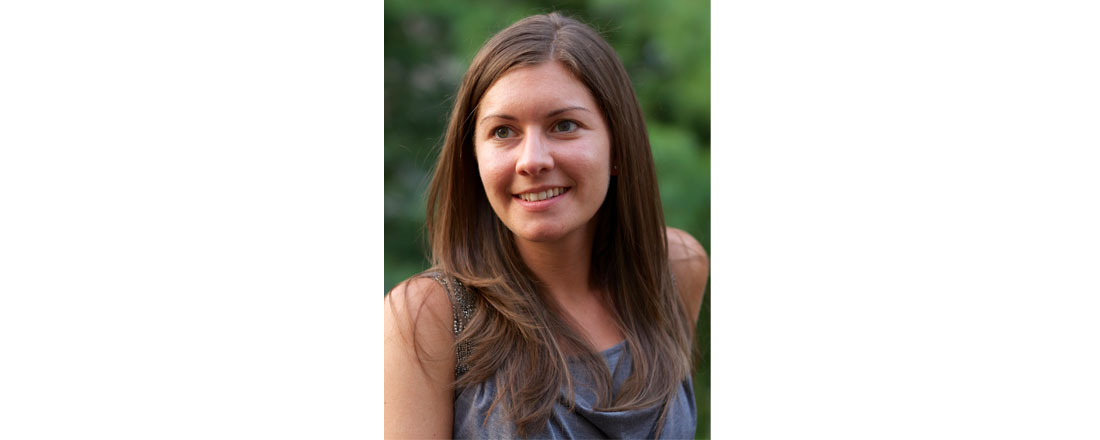Updated 3:55 p.m. 8/9/12: Corrected information about where Shaw first began teaching.
This is another profile of a member of this class of the Digital Harbor Foundation‘s EdTech fellows. See others here.
Jenna Shaw has one goal this year: get Google Chromebooks into the hands of each one of the 75 kids she teaches at Patterson Park Public Charter School.
It’s perhaps a bit of an odd sentiment for Shaw, 26, an English major from University of Maryland College Park turned middle school language arts teacher. But as one of the first class of Digital Harbor Foundation EdTech fellows, she thinks Chromebooks would be the “perfect solution to what I’m trying to do with my kids.”
“The Google apps would be a game changer for us,” says Shaw. “Their web store for education is awesome.”
Shaw, a native of Howard County, took a circuitous route on her way to teaching middle school in Baltimore city. She had originally started her undergraduate education as an education major at Northern Arizona University in Flagstaff, transferring to College Park two years in to be closer to home. (The credits didn’t transfer smoothly, she says, hence her switching her major to English.) After graduating in December 2008, she entered the Baltimore City Teaching Residency, was given a three-week crash course, and then started teaching full-time to a classroom of kids at Armistead Gardens Elementary/Middle School that hadn’t had a teacher the entire year. She then taught at Waverly Elementary/Middle School during the 2009-2010 and 2010-2011 school years.
“I was really lucky to be at a very good school, with very good leadership,” Shaw says. “It wasn’t as awful as it could have been or as it was for some other people.”
Her foray into the Digital Harbor Foundation’s fellowship followed a similar, roundabout path. Last year was Shaw’s first at Patterson Park Charter, during which she supervised an in-class intern from Johns Hopkins University, Margaret Roth, who had taken a summer course on education technology with DHF co-executive director Shelly Blake-Plock.
“I was able to take my knowledge of pedagogy and what worked for the kids, and she was able to bring in the technology,” says Shaw. “We took a project I had done in the past and we amped it up and changed it.”
That project was a written memoir her students put together as a digital portfolio. Templates in Microsoft Word were created so her students learned how to insert different data and information, and students color-coded different words in their memoirs as a way to evaluate their own writing.
“[Students] changed the template, they added images. … [Technology] allowed kids to go in any direction they wanted based on their skill set. They were still learning and building on those foundational skills,” says Shaw.
Eventually, Shaw and her intern submitted this experience as a proposal to the Harvard Student Research Conference, which is how Shaw met Blake-Plock—he was the one who read through her proposal.
Now Shaw is learning about web design, mobile applications, digital badging and other education technology topics with her cohort of fellows. She says that having a stand-alone class website as well as an Edmodo website “are going to make my life easier.”
“Using Edmodo … [I can post] questions, discussions, libraries. It’s a place where kids can go and interact with each other, with material and with me,” says Shaw. The added benefit? Students’ parents can log on to Shaw’s Edmodo site and receive notifications of quiz and assignment grades.
Shaw will also be running a tech club three days a week after school. One day each week will be spent on STEM initiatives with students, while the other two days a week will be spent working with Wide Angle Youth Media, a city nonprofit that helps students create films about their lives and neighborhoods.
“A lot of times with our kids we see this shut-down mode when they get frustrated, or they don’t understand something,” Shaw says. “With technology it’s not really like that. They have this resilience to learn and to overcome that frustration.”
Shaw says that’s the power of technology—it allows students to create for themselves, as opposed to creating something a teacher has asked of them.
As for those Google Chromebooks? Shaw says she’ll happily accept donations.
“We’ll write you haikus,” she says.
EdTech fellow Jenna Shaw: technology gives students a ‘resilience to learn’







